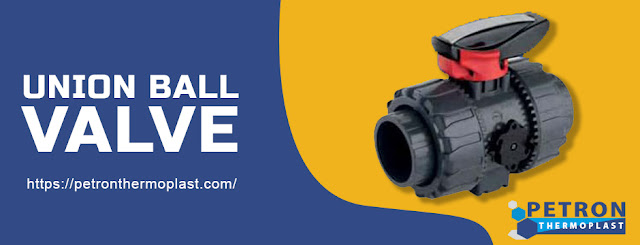There are many different types of plumbing valves, but the two most common are plastic and metal valves. While metal has historically been favoured for its strength and relative longevity, plastic is gaining popularity in a variety of applications. Why? Plastic is less expensive, doesn't corrode, and is simpler to handle, making installation much easier. Plastic also has a low maintenance cost (if any) and lasts longer than other materials.
Given all of these advantages, you may be asking why anyone would pick anything other than the PVDF ball valve! Because plastic is best suited to certain systems and environments, it's critical to make sure you're selecting the proper material for the job. If you don't, your valve may be broken, causing the entire system to malfunction. However, there are several cases when plastic can effectively replace metal. Let's have a look at these.
Under what conditions can I use a PVDF ball valve instead of metal valves?
Consider the following factors before going right in and choosing plastic over metal plumbing valves:
• What are the temperatures and pressures that the valve will be subjected to? Metal is frequently used because of its great heat resistance. Some types of plastic valves are also heat-resistant, so make sure the material you pick can tolerate high temperatures and pressure.
• What is the possibility of generating shock pressure? Water hammers, for example, should not be used to harm plastic. You may avoid this problem by using high-quality plastic valves that can withstand battering!
• Examine your chemical resistance. Will any chemical substances that come into touch with plastic be able to survive them? The majority of plastic valves on the market today are strong enough to withstand chemical exposure.
• Are you looking for a solution that will last for a few months to a few years? Plastic valves, unlike metal valves, do not rust, corrode, or pit. They also have a very smooth inside lining that has a high flow coefficient and maintains consistent flow rates throughout time.
• Will the plastic component be put under any strain? This is the most common cause of installation failure, therefore make certain there will be no tension on the component at any time, even during operation. Misalignment of the valve inside the metal system and misalignment of the flanges are red flags to look out for.
About Petron PVDF Dual Block 2-Way Ball Valve
The PVDF Dual Block 2 Way Ball Valve Series from Petron Thermoplast is the best and most heavy-duty ball valve quality for the water and wastewater sectors, as well as the finest heavy-duty ball valve series for the agricultural industries. We have a PVDF ball valve series called the Dual Block Series. A Dual Block 2-Way Ball Valve is one that uses two seating surfaces to seal off pressure from both ends of a PVDF Dual Block 2 – Way Ball Valve.
When selecting a valve, the fluid properties, pressure, and temperature must all be considered. The valve's intended purpose, on the other hand, maybe the most important aspect. Depending on your process and expectations, as well as industrial water application requirements, you may pick from a range of settings. The PVDF Dual Block 2-Way Ball Valve technology allows the P2 Valve to shine in operational settings when vibration or thermal expansion may undermine the standard's performance. Back-off is prevented by a proprietary union-nut locking system under demanding service circumstances. The system is simple to set up and requires no special tools.






No comments:
Post a Comment